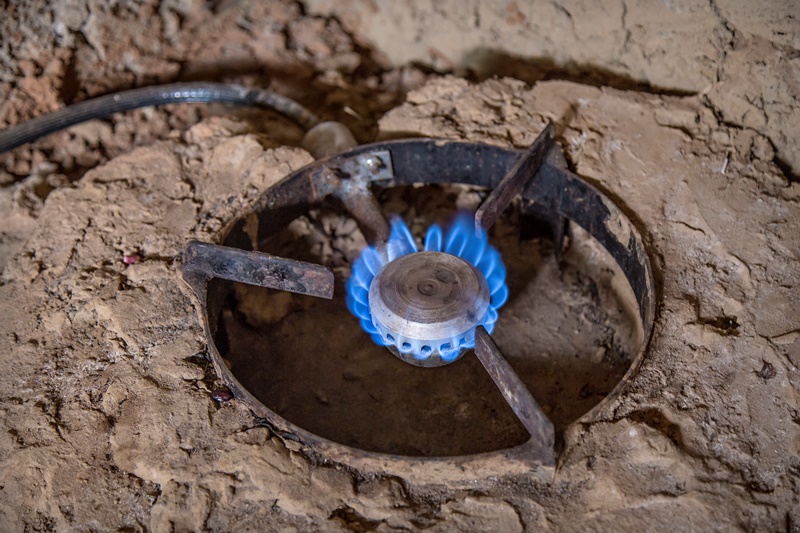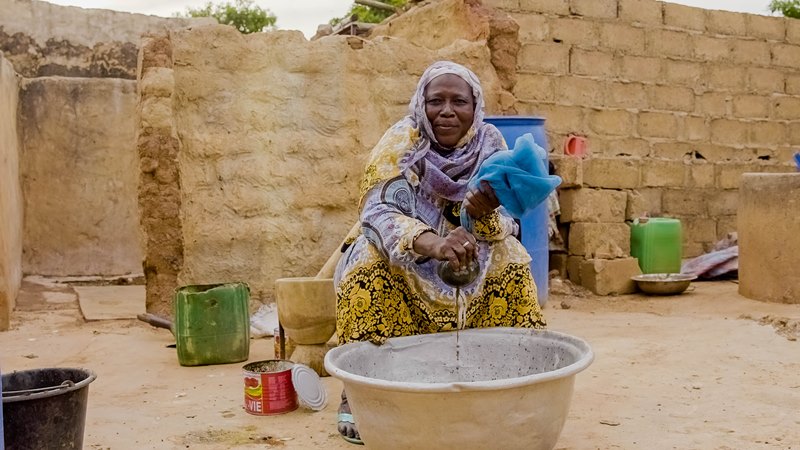The long journey
As the Creative Dialogues about the 10 years of powering lives in Africa came to an end, my colleague challenged me to opine what the experience has been since the beginning. Just a glance at this documentary reminded me of the unforgettable memories created from implementing the Africa Biogas Partnership Programme (ABPP).
My adventure with the bio-digester world began one morning in 2007 when Hadizatou Yacouba, the former Director of SNV Burkina Faso called me to her office. She was in the company of Jan de Witte, the former West and Central Africa Regional Director of SNV having discussions about the inception of the bio-digester program in Burkina Faso. Hadizatou appealed to me, to support SNV in this request. The rest of it as they say, is history. That is how my journey in the biogas world began.
The Dutch Ministry of Foreign Affairs’ DGIS department had established the bio-digester initiative in Asia and wanted to replicate the same in Africa. Their investment of up to Euros 30 Million would later accelerate the establishment of a commercial market for biogas in Africa with Hivos and SNV as the lead front-runners.
As a Fund Manager, my role has been instrumental in steering the programme to provide technical and financial support to governments and national institutions in Burkina Faso, Ethiopia, Kenya, Tanzania and Uganda. It has been a tale of resilience that sharpened my understanding of market development especially with unique partners such as the private sector, government and civil society organizations.
Who planted a tree did not live unnecessarily
Prior to the establishment of ABPP, none of the supported countries had the capacity for large-scale construction on a commercial basis. Across these five countries, the history was the same for biogas. There was always a pilot initiative that never saw the light of the day, an isolated project or a philanthropic initiative that sometimes included the construction of a few bio-digesters through donation. Thus each year, a dozen bio-digesters were built in each of these countries and over time would cease to function. No one believed that local businesses would be able to sell one hundred and fifty bio-digesters per month to rural households in Burkina Faso or three hundred installations in Kenya.
How did we get here?
These results were made possible thanks to the establishment of a national program in each of the partner countries. Fruitful and collaborative relationships between public, private and civil society actors were constantly negotiated and strengthened where ABPP relied on innovators to ‘awake’ the market. This marked the beginning of a celebration that would see 100 bio-digesters built in several countries monthly.
By the end of 2019, ABPP-supported programs will have facilitated the construction of more than 70,000 installations, enabling about half a million people to have access to clean energy for cooking and lighting. This stock of bio-digesters has allowed thousands of rural families to have organic fertilizer for their agricultural production. Although the ideal goal is more ambitious than what we can achieve, ABPP is extremely proud to have been the first programme to reach the large scale dissemination.
In fact, as my West African friends say: You can bring a cow to the river, but you cannot force the cow to drink! How market responds to stimulus is entirely unpredictable.
You cannot plow, sow, harvest and eat the same day
West Africa- particularly countries in the Sahel region- has become a rising giant in establishing a market sector for biogas. Under the leadership of Burkina Faso, countries are leading the promotion and establishment of national bio-digester programmes. Two conferences in 2017 and 2018 birthed the West and Central Africa Alliance for the Promotion of Bio-digesters. This alliance will be a regional vehicle expected to upscale the adoption of biogas in West Africa and formally launched during the Dakar Conference in March 2020. Presently, eight member states (Benin, Burkina, Cote d’Ivoire, Guinea, Mali, Niger, Senegal and Togo) have signed the agreement with three more: Cameroon, Chad and Guinea Bissau showing interest. This development has truly shown that decentralizing renewable energy pays!
About Author
Jean Marc Sika is Hivos East Africa’s Programme Manager for Renewable Energy and also Fund Manager for the Africa Biogas Partnership Programme (ABPP)





